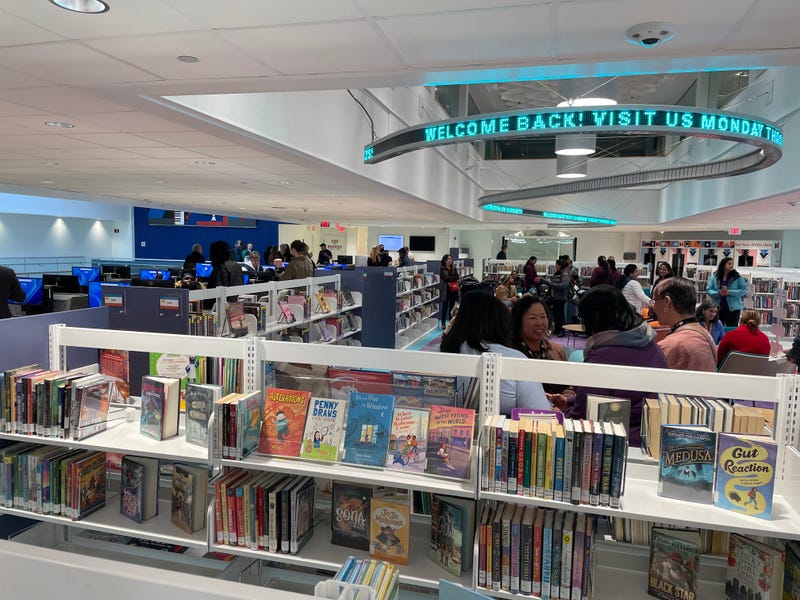
Cristina Burgos Monegro arrived in the U.S. in 2002 to pursue a better life. She decided early on to give back to the country that welcomed her. So, after advancing through The American Place (TAP) program based at the Hartford Public Library (HPL), the newly naturalized U.S. citizen went to work for that program.
She’s now U.S. Citizenship Administrative Coordinator for TAP.
“Applying for American citizenship has given me a sense of belonging to a community that has, for me, given me the opportunity and privilege of reciprocating the generosity of which I have been a beneficiary, impacting others’ lives.”
Over 25 years, TAP has provided education and legal guidance to thousands of lawful, permanent U.S. residents like Cristina in their pursuit of citizenship.
“It means opportunity, it means access, it means support,” says HPL President & CEO Bridget Quinn of the program.
Now, Quinn says, TAP is one of many local programs in jeopardy due to Trump Administration cuts of congressionally-approved spending. This spring, the White House cancelled a $450,000 grant to TAP. That’s about half the program’s budget.
Democratic Senator Richard Blumenthal calls the cut illegal, and he’s seeking restoration of the grant, saying the government should be supporting legal immigration, not creating roadblocks to it.
“We need those new citizens—here legally—to become citizens.
We are a nation of immigrants,” says Blumenthal. “The investment in this kind of education is worth every single penny.”
Blumenthal says libraries are the perfect place for immigrants to find support, and Quinn agrees:
“The Hartford Public Library is one of the first places that people who are new to our country and new to our community come to get information and to be connected. That kind of a resource, where people feel welcome and know they are going to get help is invaluable.”
HPL says about 50 people were pursuing naturalization applications through TAP when the federal funds were terminated. The program continues for now, but its future is in doubt.
“This funding is critical,” says Quinn. “It funds well over half of the operational budget of the services we that provide for people who are seeking citizenship. So, without it, it really creates a challenge for us to maintain the same number of people that we can help over the course of a year.”
